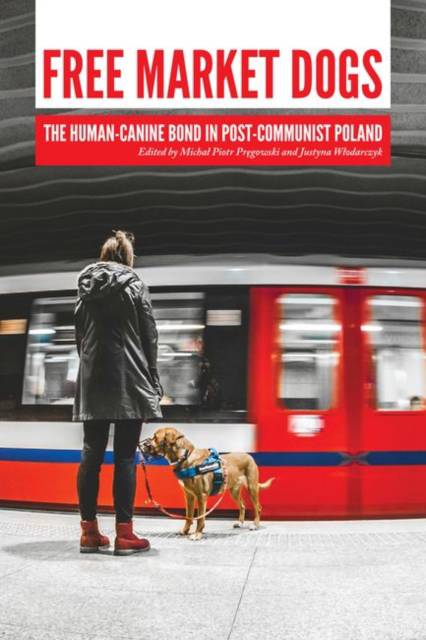
Je cadeautjes zeker op tijd in huis hebben voor de feestdagen? Kom langs in onze winkels en vind het perfecte geschenk!
- Afhalen na 1 uur in een winkel met voorraad
- Gratis thuislevering in België vanaf € 30
- Ruim aanbod met 7 miljoen producten
Je cadeautjes zeker op tijd in huis hebben voor de feestdagen? Kom langs in onze winkels en vind het perfecte geschenk!
- Afhalen na 1 uur in een winkel met voorraad
- Gratis thuislevering in België vanaf € 30
- Ruim aanbod met 7 miljoen producten
Zoeken
Free Market Dogs
The Human-Canine Bond in Post-Communist Poland
€ 48,45
+ 96 punten
Omschrijving
What has changed in the last twenty-five years in the relationship of Poles with their dogs? How have the free market and capitalism influenced Poland and the human-canine bond there? Are dogs "property," "friends," or "members of the family" in post-communist Poland? Free Market Dogs, edited by Michal Piotr Pregowski and Justyna Wlodarczyk, examines the interactions and relationships of dogs and humans in contemporary Polish culture and society, and explores how Poland's intense exposure to Western-and particularly American-cultural patterns influenced the status of dogs after restoration of democracy in 1989. This book discusses topics such as the emergence of pet cemeteries, dog memoirs, and presidential dogs in Poland; the growing popularity of dog sports and the feminization of said sports; the philosophical and ideological changes in dog training caused by exposure to state-of-the-art methods from American books and videos; dogs in contemporary Polish art; and the specificity and growing pains of local pet-facilitated therapy. Free Market Dogs was written by researchers and practitioners whose academic background includes sociology, anthropology, pedagogy, cultural studies, and literary studies, and whose practical experience involves either training dogs or working with them. Based on thorough research and personal expertise, this is a great book for anyone interested in human-canine relationships-and their similarities and differences-around the world.
Specificaties
Betrokkenen
- Uitgeverij:
Inhoud
- Aantal bladzijden:
- 225
- Taal:
- Engels
- Reeks:
Eigenschappen
- Productcode (EAN):
- 9781557537409
- Verschijningsdatum:
- 15/04/2016
- Uitvoering:
- Paperback
- Formaat:
- Trade paperback (VS)
- Afmetingen:
- 150 mm x 226 mm
- Gewicht:
- 340 g

Alleen bij Standaard Boekhandel
+ 96 punten op je klantenkaart van Standaard Boekhandel
Beoordelingen
We publiceren alleen reviews die voldoen aan de voorwaarden voor reviews. Bekijk onze voorwaarden voor reviews.








